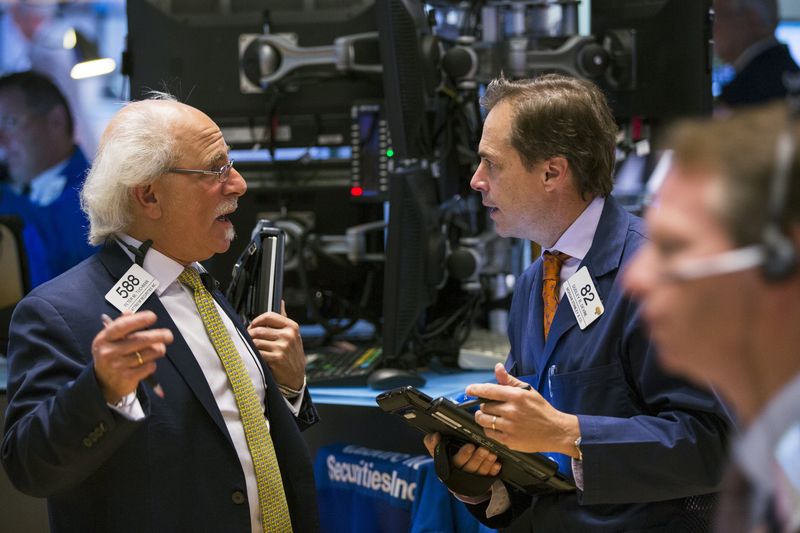Investing.com – Stocks fell Friday on a holiday-shortened trading day ostensibly because of new worries about the long-awaited phase one U.S.-China trade deal.
The S&P 500 and Dow Jones industrials fell 0.4%. The Nasdaq Composite dropped 0.46%. The Nasdaq 100 dropped about 0.5%.
U.S. markets were closed on Thursday for the Thanksgiving holiday.
The China issue was that President Donald Trump signed the Hong Kong Human Rights and Democracy Act, and the Beijing was unhappy about it and threatened unspecified retaliation. The noise pressured stocks and sent gold up $11.90 in New York to $1,472.70 an ounce.
Wall Street reacted unhappily, along with markets around much of the world. But the China stress didn't set off a lot of panic. Rather, the mood seemed to be more of the same in a long negotiation, with regular eruptions of anger from both sides, and that a phase one trade deal is still coming.
The larger issue was an absence of demand to buy stocks because many investors are comfortable with the stock market's current state.
In a holiday-shortened week, the S&P 500 managed to add nearly 1%. The Dow rose 0.6%, and the Nasdaq climbed 1.71%.
Stocks enjoyed their best month November since June. The S&P 500 finished 3.4% higher for the month, with the Dow up 3.72% and the Nasdaq up 4.5%.
For the year, the S&P 500 is up 25.3%, with the Dow up 20.3% and the Nasdaq up 30.6%.
If stocks are flat in December, the market will have its best gains since 2013.
But the euphoria must be tempered by the 2018 fourth-quarter slump, when the S&P 500 fell 14%, the Dow dropped 11.8% and the Nasdaq tumbled 17.5%.
On the Friday after Thanksgiving in 2018, the fourth-quarter market swoon was erupting in a big way, leading to a decline of 9% for the S&P 500, Dow and Nasdaq in December 2018
Early notes this year suggested the big Black Friday holiday shopping spree was going well, if not gangbusters. But some noted that there were pre-holiday sales appearing regularly across the country.
All 11 sectors of the S&P 500 were lower on the day.
Financial stocks were least affected by the selling. But energy stocks were the weak link as oil prices moved lower. The selling was due in part because of worries next week's OPEC meeting won't produce meaningful action to reduce output among OPEC members. In addition, the United States proved a net exporter of crude oil for the first time since records were kept.
IBM (NYSE:IBM) was the top Dow stock. Walmart (NYSE:WMT) was up slightly. Apple (NASDAQ:AAPL) hit a 52-week high but then fell back.
Interest rates were higher as the United States 10-Year Treasury yield bumped up to 1.778% from Wednesday's 1.767%.
West Texas Intermediate crude was off more than 5% to $55.17 a barrel. The February contract for Brent t crude, the global benchmark, was down 3.8% to $60.78 a barrel.
Electric-utility giant NRG Energy (NYSE:NRG), personal-computer company HP (NYSE:HPQ), fertilizer maker CF Industries (NYSE:CF) and information tech company DXC Technology (NYSE:DXC) were the top performers among S&P 500 stocks.
Oil-and-gas companies Apache (NYSE:APA), TechnipFMC (NYSE:FTI), Devon Energy (NYSE:DVN) and retailer Kohl's (NYSE:KSS) were the weakest S&P 500 performers.
